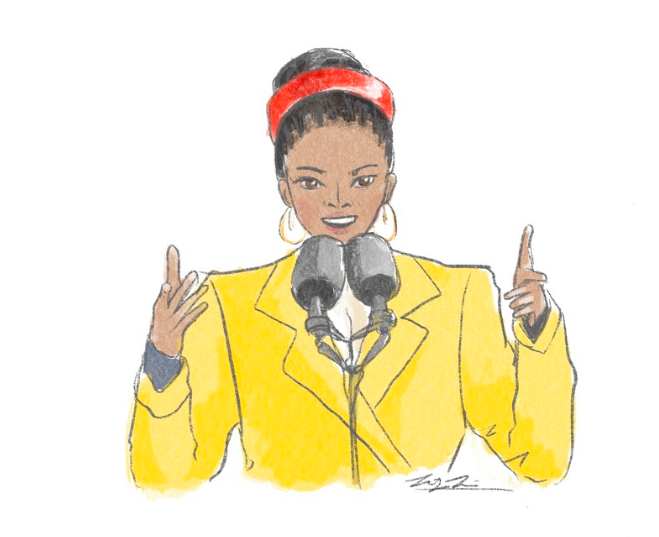The inauguration of President Joe Biden and Vice-President Kamala Harris was filled with powerful moments. The star-studded event included Lady Gaga’s performance of the ‘Star-Spangled Banner’ and Jennifer Lopez’s medley of patriotic songs, as well as the post-inauguration Celebrating America TV special, which featured the likes of Bruce Springsteen and John Legend.
However, amidst all the fanfare, one particular moment stood out from the rest. On January 20, the United States’ first National Youth Poet Laureate, Amanda Gorman, took the nation by storm after delivering her poem “The Hill We Climb” at the inauguration. At just the age of 22, she became the youngest inaugural poet in the nation’s history to achieve such a feat.

“The Hill We Climb” has received international acclaim for its powerful message on the necessity of unity and resilience in a nation. Gorman alludes to the modern U.S. and the underlying economic, political, and cultural issues that have been exposed in the wake of concurrent crises afflicting the country. She uses motifs of darkness and light, fear and hope, and destruction, as well as literary devices like alliteration and anaphora, to aid her depiction of the dividers and uniters of a nation. Structurally, the poem is not bound to any certain rule, and is written with a rare rhyme scheme that characterizes the poem just as much as the historical significance behind it.
In the first few lines, Gorman establishes a “we” as the people of the United States, introducing her message of unity. “The sea” of horrors that Americans must “wade through” represents divisive issues that have haunted the U.S., both recently and since the nation’s founding; these include COVID-19, racial injustice, and civil unrest.
Her sudden change of tone begins in line 9, where she writes:
And yet the dawn is ours
before we knew it
Somehow we do it
Somehow we’ve weathered and witnessed
a nation that isn’t broken
but simply unfinished
“Dawn” represents hope—a new beginning—and from Gorman’s perspective, an opportunity for us to reunite and restore the values upon which our country was built. A new era under a new President, she believes, will allow American citizens to restore this new dawn and to prove to the world that, despite our differences, we can stand together. To Gorman, the U.S. system is neither perfect nor broken, but we must continue to learn from our ignorance and mistakes to foster a stronger, more connected society. To underscore her recurrent message of unity and, ultimately, our fundamental humanity, she writes a line that underscores the sameness of “cultures, colors, and characters” using alliteration.
From lines 60 to 65, Gorman finally alludes to the elephant in the room: the pro-Trump Capitol protests and riots that interrupted Congress’ tallying of Electoral votes. Some rioters handled weapons, and some others carried Confederate flags. To this, Gorman writes:
We’ve seen a force that would shatter our nation rather than share it,
Would destroy our country if it meant delaying democracy.
And this effort very nearly succeeded.
But while democracy can be periodically delayed,
It can never be permanently defeated.
Gorman has faced a challenge no other inaugural poet has before. Throughout the past year, America has witnessed the devastating effects of COVID-19 as well as the severe impacts of racial and partisan discrimination; it has been decades since we have last seen the country so divided. Through her work, Gorman hopes to inspire perseverance, resilience, and, most importantly, unity among American citizens despite chaos. As she told The New York Times, “Poetry is typically the touchstone that we go back to when we have to remind ourselves of the history that we stand on, and the future that we stand for.”

